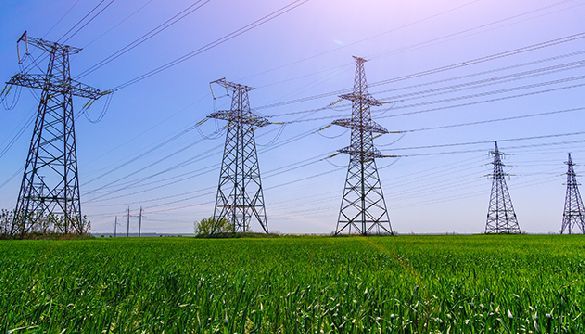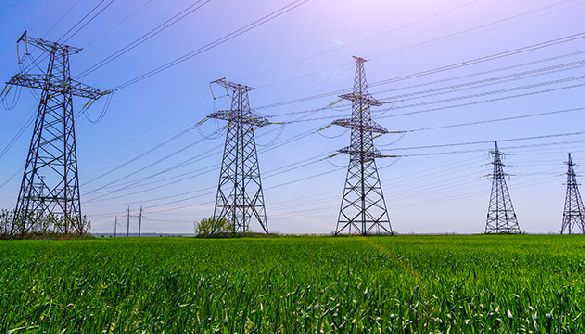
How to write about the energy market without mistakes and manipulations
How to write about the energy market without mistakes and manipulations


The monitoring of the Ukrainian media (in particular, as carried out by Detector Media) has shown rising manipulation in the recent publications on energy tariffs, energy security and independence of Ukraine. These topics have been used by politicians and energy sector business groups to influence public opinion.
Recently reformed, the energy market has become an especially sensitive topic. The media, just like society and business, have not yet become fully accustomed to the new reality. So in addition to deliberate misrepresentation and disinformation, journalistic materials may contain unintended errors. Following up on the complaints concerning manipulations in the energy market, the Independent Media Council has produced a set of recommendations that will help the journalists covering these topics make their texts easy to understand and avoid misleading the readers, whether intentionally or not.
1. Before writing on energy, a proper understanding of the context should be gained. You should start by reading trade publications such as Ukrainian Energy that publishes substantial materials and a wide range of energy news. A high quality archive of news and reprints of business media materials is available on uaEnergy. EXPRO consulting is worth visiting if you are looking for interviews and the sector’s latest developments. Lots of information on the energy market can also be found in consumer publications but they are more likely to use outdated information or serve the interests of businessmen and politicians.
2. Politicians’ statements make space for manipulation with regard to energy. Their viewpoints are not always based on economic realities and they often seek to attract voters like retirees and the needy who will always find lower rates appealing. Some politicians represent the interests of large financial and political groups or holdings that have control over energy companies. That is why politicians’ statements should not replace expert opinion in the discussion and information materials on the energy market. And when they end up published, the facts and statements made by politicians should always be reviewed and analyzed.
3. Pay attention to the quality and professionalism of the commentators whose opinion you use in your texts. In recent years, the number of experts has significantly increased with the quality of expertise drastically deteriorating. Many energy experts who appear in pro-Russian media base their viewpoints on economic indicators. So, prior to asking for a commentary, try to find this expert’s statements on the Internet or on social networks and weigh the risks. It is best to look for commentators and sources of information at professional events (Energy Club meetings, Adam Smith Forum, Ukrainian Energy Forum, etc.) or in expert organizations that have already established themselves in the market and often conduct training sessions for journalists, and professional meetings. Experts from DiXi Group, Argus Media, Energy Club, etc. are eager to provide commentary and assist with energy education. Associations such as the Ukrainian Wind Energy Association or the Gas Market Association will help with more specific topics. GreenCubator will help you comment on the intersection of environmental topics and energy and the nuances of energy market legislation.
4. You can only quote biased experts in one case, namely if you want to present the position of the other party mentioned in the text but cannot comment directly on behalf of that party (for instance, Gazprom or another Russian organization which are normally reluctant to comment on international affairs for Ukrainian media). However, even in this case, it is better to contact the source of the information. A commentary from a company representative or its public position on the Internet will balance the material better than citing biased experts’ views.
5. Choose the format carefully. Analytics requires that each statement be well reasoned. While you can simply call the tariff system unfair in your column, you will have to substantiate this argument in an analytical publication. Try to reduce the impact of personal likes and dislikes on the text. Even if your text exposes corruption, less emotional wording should be chosen and your statements should be backed with the comments from lawyers or experts. If you are writing about a company’s monopoly position in the market (as yet officially unconfirmed), that is, you understand that the company is really a monopoly but the Antimonopoly Committee has not yet recognized it as such, you had better refrain from calling it that. Write about the "monopoly characteristics" explaining what they are and let the reader draw a conclusion. Yes, this will complicate the text stylistically but it will also allow you to maintain professional neutrality. Otherwise, quote an expert who will confirm your point. But do not forget to present the positions of other parties.
6. Special energy-related media projects should be treated with reserve. Due to the possibility of creating partner publications, many companies are now actively promoting their viewpoint, sometimes at the expense of standards and logic. If you see that the topic is covered one-sidedly with links to related publications or ideas coming from dubious media or from the media affiliated with the beneficiaries such materials will be of questionable value and their information should be carefully verified.
7. A major distortion that arose in the media sphere with the introduction of the new electricity market is the misrepresentation of price. Many market participants try to pass off their product’s desired price as real, i.e. established by the market.
8. Statistics provides a good illustration of the topic. It can be the original source for news or analytical materials. But statistics alone cannot be used to build up a publication, it needs further clarification. If you do not work for an industry or business publication targeting a wider audience, make sure that you do not fail to explain your choice of comparison. Comparing electricity prices in different markets may be quite obvious to you but not so obvious to the average reader. If you simply compare two indicators, make it clear to all why you selected them. After all, manipulation of incomprehensible statistics looks credible resulting in wrong ideas ("numbers cannot lie"). Remember, statistics may also be inaccurate. So if you have the possibility to compare two sources, do it.
9. Use plain language and your own words avoiding industry-specific terminology and jargon. If you have to use professional terminology (e.g. in quotations), explain its meaning to a wide audience. And never be embarrassed to ask experts to explain the terminology they use. Keep in mind the following saying: If you cannot explain your topic easily and in plain language it means you do not know it well enough yourself.
10. Use official sources to verify the facts. If you need to compare electricity prices in Ukraine and abroad there are a number of energy exchanges that regularly publish cost data for both electricity and energy (coal, uranium) markets. For example, here are the energy exchanges of Ukraine's western neighbors Poland, Hungary, Slovakia and Romania. It is usually free of charge, as with IndexMundi. Although some of this data is provided on a paying basis (like Bloomberg or Argus), experts usually have access to such data. The Baumgarten (Central European Gas Hub) is normally consulted with regard to gas, so it makes sense to monitor it as well.
11. Legislation will help you understand the situation and relations between the market players. It is important that you familiarize yourself with the following laws: On the Electricity Market (the new and older versions to trace the changes in the market and see why its restructuring is being discussed so much), On Heating, On Oil and Gas, On the NCSREPU, as well as the Energy Strategy of Ukraine until 2035 and the low-carbon development strategy of Ukraine until 2050. You should also consider international sources such as the EU Third Energy Package, the Agreement on the terms of the future unification of the energy systems of Ukraine and Moldova with the continental power grid of Europe, and the Paris Climate Agreement. They impact the development of Ukrainian legislation and its further harmonization with European laws. It is the introduction of symmetrical provisions that has caused so many market disputes today. It is also useful to know the provisions with regard to state-owned companies such as Ukrhydroenergo, Ukrenergo and Naftogaz of Ukraine. And certainly, everything related to privatization: a number of the energy sector enterprises are still state-owned being on the privatization list for several years. So it is important to understand what is going on in the privatization sphere and why things may go wrong.
12. It is worth learning to read financial statements. There are a lot of interesting topics to be found in the production and financial reports, starting from the companies’ debts and ending with their recent secret purchases. YouControl conducts occasional webinars on how to read the reports correctly.
13. Investment companies’ analysts can help you understand the situation. Almost all of them are eager to give commentary and they are actively using social networks. However, you should take into consideration whether or not this particular company owns the shares of the business you are writing about or provides services to it, as it is then a conflict of interest. However, the commentary made by the companies whose customers are energy sector enterprises is appropriate when it relates to litigation cases involving energy market players: this is how you get a firsthand view.
14. It is useful to read industry-specific literature. You can start with the Encyclopedia of Ukrainian Energy compiled under former Minister of Fuel and Energy Ivan Plachkov. The information there is partly outdated but it will still provide you with a general understanding of how the country's energy industry works. The same applies to the archives of the papers like Kommersant, Delo, InvestGazeta, Biznes, Delovaya Stolitsa, Kontrakty, Forbes and the like. They will help you understand the market situation during the Revolution of Dignity.











